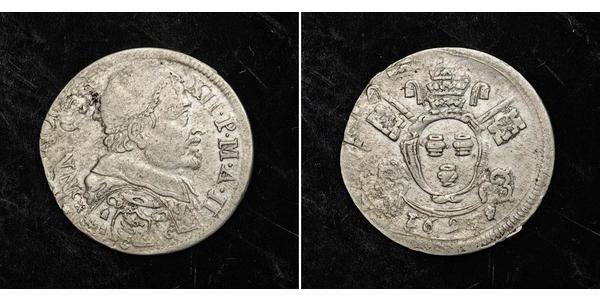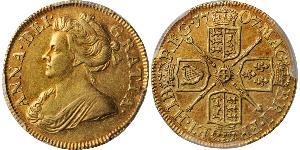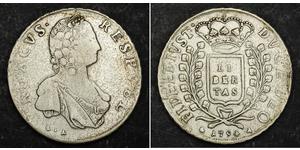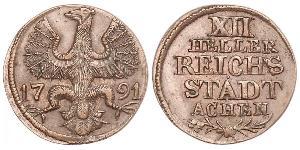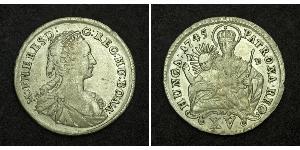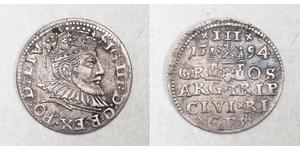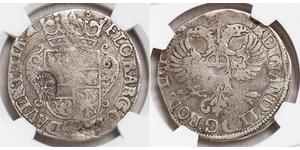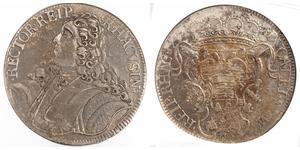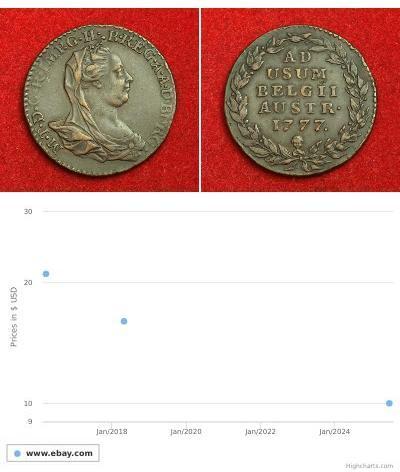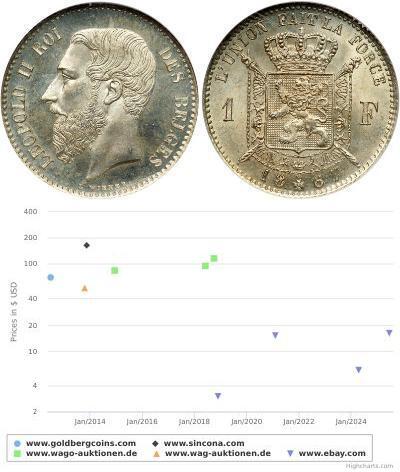(sold for $36.0)
1693, Vatican, Papal States, Avignon, Pope Innocent XII. Silver 1/12 Scudo Coin. R!
Mint year: 1693 Condition: About VF! Denomination: 1/12 Scudo Reference: KM-105 ($150 in F / $350 in VF!) Diameter: 21mm Weight: 1.57gm Material: Silver
Obverse: Capped bust of Pope Innocent XII right, wearing camauro, mozetta, and stole. Coat-of-arms below arm truncation. Legend: * INNOCEN XII . P . M . A . II Reverse: Coat-of-arms of the Pope, surmounted by papal tiara. Date (1693) below.
em>.
Pope Innocent XII (March 13, 1615 – September 27, 1700), born Antonio Pignatelli was Pope from 1691 to 1700. He was the successor of Pope Alexander VIII (1689–91).
He was born in Spinazzola (current Puglia) to one of the most aristocratic families of the Kingdom of the Two Sicilies, which included many Viceroys, and ministers to the crown, and was educated at the Jesuit college in Rome.
In his twentieth year he became an official of the court of Pope Urban VIII (1623–1644); under successive Popes he served as nuncio at Florence and Vienna and in Poland; he served as inquisitor in Malta; and by Pope Innocent XI (1676–1689) he was made cardinal in 1681 and archbishop of Naples. After the conclave held after the death of Alexander VIII had gone on for five months he was a compromise candidate between the cardinals of France and the Holy Roman Empire.
Immediately after his election on July 12, 1691, Innocent XII declared against the nepotism which had too much and too long been one of the greatest scandals of the Papacy; the bull Romanum decet Pontificem, issued in 1692, banned the curial office of the Cardinal Nephew and prohibited Popes at all times from bestowing estates, offices, or revenues on any relative; furthermore, only one relative, "if otherwise suitable", was to be raised to the cardinalate. At the same time he sought to check the simoniacal practices of the apostolic chamber, and in connection with this to introduce a simpler and more economical manner of life into his court. Innocent XII said that "the poor were his nephews", comparing his public benificence to the nepotism of many predecessors.
Innocent XII introduced various reforms into the States of the Church, and for the better administration of justice erected the Forum Innocentianum. In 1693 he compelled the French bishops to retract the four propositions relating to the Gallican Liberties which had been formulated by the assembly of 1682. In 1699, he decided in favour of Jacques-Benigne Bossuet in that prelate's controversy with Fénelon about the Explication des Maximes des Saints sur la Vie Intérieure of the latter. Innocent XII's pontificate contrasted with that of a series of predecessors in having marked leanings towards France instead of Germany.
Innocent XII appears as one of the narrators in Robert Browning's long poem "The Ring and the Book" (1869), based on the true story of the Pope's intervention in a historical murder trial in Rome during his papacy.
This benevolent, self-abnegating and pious Pope died on September 27, 1700 and was succeeded by Pope Clement XI (1700–1721). His tomb at St. Peter's Basilica was sculpted by Filippo della Valle.
No reserve. Only 1$ for each additional item purchased!

|
Posted by:
anonymous 2017-01-30 |

